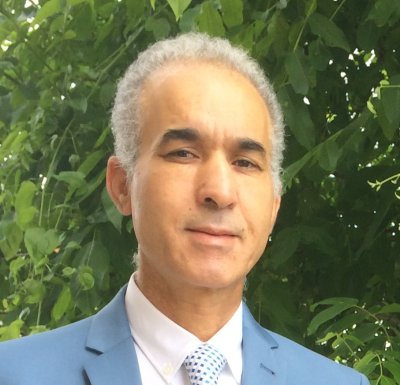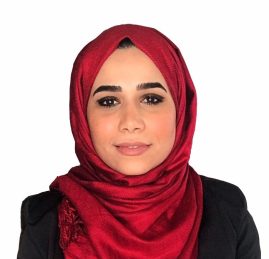On 13 September, Madrid hosted a group of Muslim and European nations, aimed at reviving the long-since-forgotten Middle East peace process. This time, though, what Spain and other European countries, including the EU itself want is a little different from what the United States wants, despite both sides agreeing on the principle that peace is possible only if the two state solution is implemented.
What happened in Madrid last September had started in the summer when Spain, Norway and Ireland announced their formal recognition of a Palestinian State. That was a significant event indicating that, at least some EU countries are no longer passive watchers as US-backed Israel continues its genocide in Gaza. However, the Madrid meeting is more significant since, in a way, it is the collective EU position which states that the only way to peace in the Middle East is the establishment of independent Palestine.
Spain’s Prime Minister, Pedro Sanchez, also wanted to send a message to Israel and its allies, especially the US that, for the two-state solution to be credible, viable and pursuable it has to be acted on now and not in the distant future. Almost all peace initiatives over the last fifty years have been shaped by the Israeli-based US supported preferences, with little regard for the Palestinians.
The event also indicates that the EU, as an important bloc, cannot be silent any more, despite the fact that the so-called Middle East peace process has been fully monopolized by the United States for a long time. Despite its long held position that the two state solution is the only way for peace, the US has, so far, failed to convince Israel of its views. In fact, the Biden Administration’s own red lines, including preventing the Gaza war from spreading to the rest of the region, have been ignored many times by Israel.
The September gathering gains more credibility when we remember that 14 out of the 27 EU member states have already recognized Palestine as an independent State and that recognition remains no more than a political position lacking effect to change things on the ground. Yet, the meeting in Madrid last month, despite having little direct positive impact on the situation in the Middle East in terms of stopping the US-backed Israeli genocide in Gaza and the obliteration of Lebanon, has huge connotations, notwithstanding the little media coverage it received. It implies and explicitly says to the US and Israel that times have changed and that the EU is no longer that passive bystander watching what the US will do before agreeing along, as is usually the case. Across the EU, public opinion has repeatedly shown support for Palestine and its overall majority is condemning the genocide Israel is conducting in Gaza and its now invasion of Lebanon, demanding ceasefire.
The meeting in Madrid invokes memories of the Madrid Peace Conference of 1991 that came on the heels of another major event in the region that shook its very foundations—the destruction of Iraq the previous year, in what became known as the second Gulf War. At the time, the US policy makers wanted Arab and Muslim support, not only to provide military assets to eject Iraq from Kuwait, which Baghdad occupied on 2 August 1990, but also to extend moral cover for the military intervention it was leading. To secure that, it made the promise that, once Kuwait was liberated from Iraq, Washington would call a peace conference to settle the bigger regional issue: the Palestinian problem.
The Gulf War was a major shift in US Middle East policy, not in using its military might but in being more active in attempting to broker peace. Many saw the Bush Senior initiative for peace in the area as the biggest and most serious US attempt, after the former Carter Administration managed to bring Egypt and Israel to sign the Camp David Accords, decades earlier.
Sponsored by the US and the former Soviet Union back in 1991, the Madrid Peace Conference, for the first time, brought the Palestinian Liberation Organization, Jordan, Syria, Lebanon and Egypt to sit around the same table and explore together the potentials for peace.
Notably, at the time, the Bush Senior Administration, determined to deliver on its promise for its Arab friends who, ironically, helped it destroy Iraq, was not soft on Israel’s Likud Yitzhak Shamir, who was an older version of Netanyahu.
As Shamir tried to delay the conference, while pushing to hallow it out even before it started, the US Secretary of State at the time, James Baker III, issued his famous public reprimand and warning to the Israelis. Frustrated, Baker had already been to the region some eight times, trying to put together the meeting in collaboration with his Soviet counterpart, and had had enough of Shamir’s endless tricks and demands regarding the conference and the Palestinian representation in it. Baker issued his public humiliating ultimatum to the Israelis, asking them to be more serious. Speaking before House Foreign Affairs Committee, he told Israel “the phone number for the White House [switchboard] is 202-456-1414. When you are serious about this [peace] call us.”
In the end, the Madrid Peace Conference convened on 30 October, 1991, and was co-chaired by President George Bush and his Soviet counterpart, Mikhail Gorbachev. At the time, the EU was yet to be created and its foreign policy arm only came into being some two decades later. The EU, as a negotiating power, now finds it hard to continue to give the US monopoly over the relations with the Middle East, where peace and its lack affects Europe before the US, given its proximity and historical ties to this part of the world.
The Madrid meeting has already given rise to the Saudi led “Global Alliance” to specifically implement the two state solution. Saudi Foreign Minister, Prince Faisal Bin Farhan, announced the creation of the group, with the participation of the EU, the League of Arab States and the Organization of Islamic Cooperation. The ultimate goal of the new group is to see a Palestinian State established on the 1967 borders.
The alliance will hold its first meeting soon in Saudi Arabia to put forward its vision as to how to see the two state solution come to reality. It is important to remember that the three parties that make up the “Global Alliance” represent more than two thirds of United Nations member states, of who over 140 have already recognized Palestine as an independent country.
Saudi Arabia wants a price to any normalization with Israel, a long cherished Israeli dream, and has repeatedly said that the price must be the creation of a Palestinian State.
-Mustafa Fetouri is a Libyan academic and freelance journalist. He is a recipient of the EU’s Freedom of the Press prize. His article appeared in MEMO.











